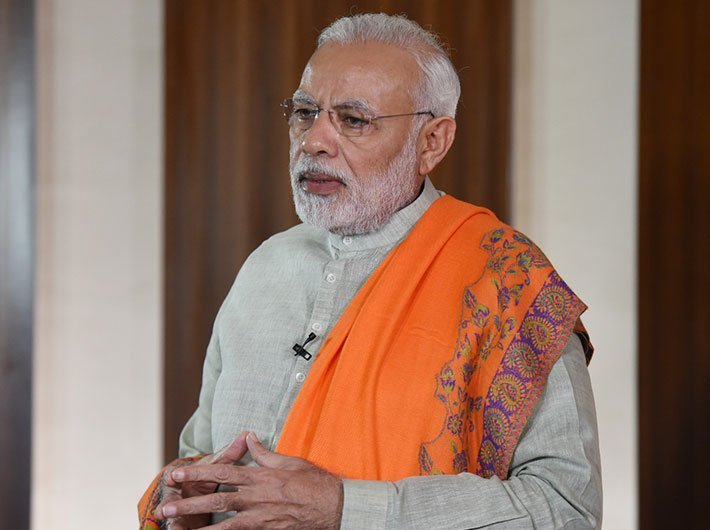VP’s move was visionary but led to protests, whereas the latest quota bill has been acceptable to all
In cricket, reverse sweep was an unconventional invention by some batsmen not only to neutralize the spin but score a big hit. Cricket analogies are often applied on Indian politics while analyzing it threadbare. And there is little doubt that Prime Minister Narendra Modi’s decision to allocate 10 percent quota for the general category in jobs and education on the basis of economic criteria is nothing short of a reverse sweep in politics.
As the Lok Sabha passed the constitutional amendment bill to enhance the quota limit on Tuesday night, it became quite evident that with a few exceptions, none could muster the courage to oppose it. Reasons are not far to seek. The Congress and its allies were too dazed to respond to the challenge that literally caught them off guard.
Now look at the narrative that the Congress has been building all these years. The party has been assiduously creating a political climate which stoked rebellion primarily among upper castes. The manner in which the Patel agitation in Gujarat and the Maratha agitation in Maharashtra were engineered was clearly intended to build an anti-government mood. Similarly, the Congress reaped the benefits of upper caste resentment in the recently concluded assembly elections in Madhya Pradesh, Rajasthan and Chhattisgarh. The government’s decision to overturn the supreme court decision that diluted the SC and ST (Prevention of Atrocities) Act rubbed the upper castes the wrong way.
Of course, what appeared to have further exacerbated the BJP’s woes is the raking up of the Ram Mandir issue in Ayodhya by the Rashtriya Swayamsevak Sangh (RSS)-Vishwa Hindu Parishad (VHP) combine. The Congress has been gleefully leveraging the discomfiture of the Modi government on the Ayodhya issue to alienate caste Hindus.
In essence, the constituency which is considered to be the core voters of the BJP has been showing signs of alienation towards the fag end of the government’s tenure. But Modi has again proved that the aphorism “a day is too long in politics” is literally correct. Contrast his latest move with the imposition of the Mandal commission report, and you will realise the difference. VP Singh introduced the OBC reservation when he found himself politically vulnerable. Chaudhary Devi Lal had risen in revolt to mobilise the Jats and OBCs against the government. VP Singh’s move too was a political masterstroke – except for the fact that it provoked a cynical reaction from upper caste youth and triggered caste clashes across north India.
The fact that the OBC reservation found acceptance across the political spectrum was a measure of political genius of VP Singh. Still, he emerged as the most hated figure among politicians of those times. The apparent reason for this hatred emanated from the assumption that his Mandal move was aimed at consolidating his support base among the numerically stronger social support base at the expense of numerically lesser but politically vocal upper castes.
VP Singh realized it too late that he would not emerge as a natural leader of the OBC consolidation. In one of my interviews with him, he admitted that he had known it all along that given his feudal background and his caste (Rajput), he would never be a leader of the OBCs. “But a worm has to die to give birth to butterfly,” he would say on his political future. There is no doubt that VP Singh became irrelevant after 1991 even though his politics led to the emergence of regional satraps like Mulayam Singh, Mayawati and Lalu Prasad Yadav in Uttar Pradesh and Bihar. In the Hindi heartland, the grammar of politics was radically changed as upper castes reconciled themselves to playing a second fiddle to OBC leadership. Ironically the BJP which began significantly with mobilization of upper castes in the Ram Janmabhoomi agitation later tactically veered towards propping up OBC leadership in the garb of Hindutva.
Modi’s emergence is the ultimate fruition of the Mandal politics with a Hindutva hue. But far from VP Singh’s politics, he is not seen as promoting sectional interests to protect his political turf. In the cynical game of power, his move to side with numerically inferior upper castes just before the election is being seen as nothing short of audacity that no political leaders could dare attempt. Unlike VP Singh, he is firmly secured in the saddle till the next election and there is no rebellion like Devi Lal’s within the saffron ranks. People may still debate on the rising and falling index of Modi’s popularity but there is no doubt that he still reigns supreme among all contemporary leaders.
The bill’s constitutional tenability will need to pass the scrutiny of the supreme court even if it is passed in Rajya Sabha. Since there are state assemblies that have broken the ceiling of 50 percent reservation set by the supreme court in the Indra Sawhney vs Union of India case of 1992 on the Mandal reservation, there are precedents to back up the move. More than legally, the move’s political objective, irrespective of questions about its symbolism, seems to have been achieved. Coming from an OBC background, Modi’s decision to give 10 percent reservation can at best be described as a “reverse Mandal” of Indian politics quite akin to “reverse sweep” of cricket.
[This comment has appeared on FirstPost.com in a slightly different version.]

